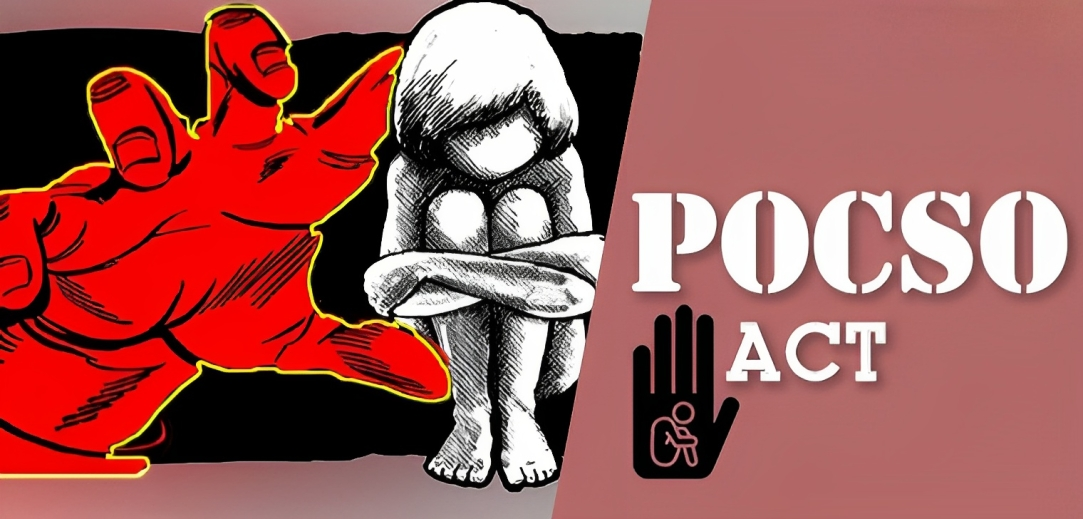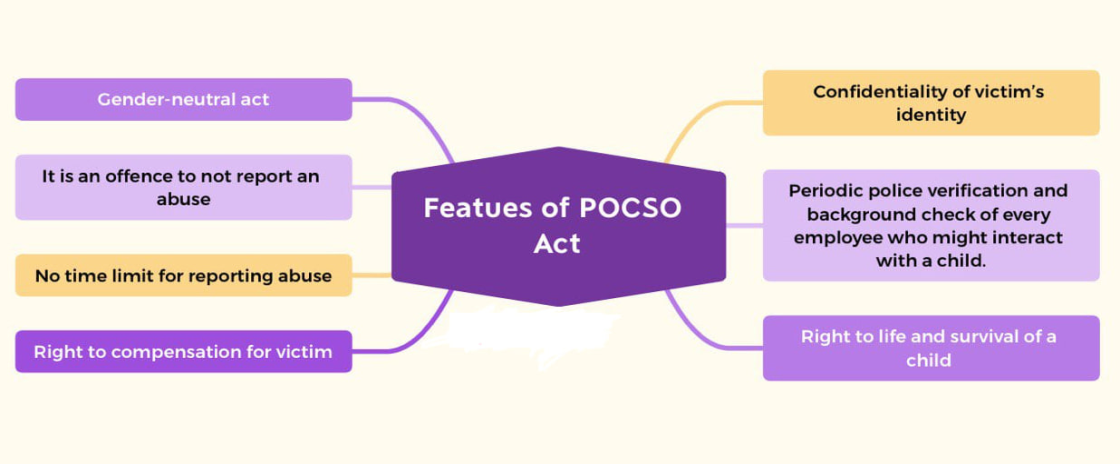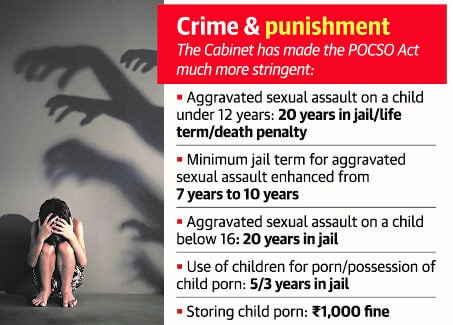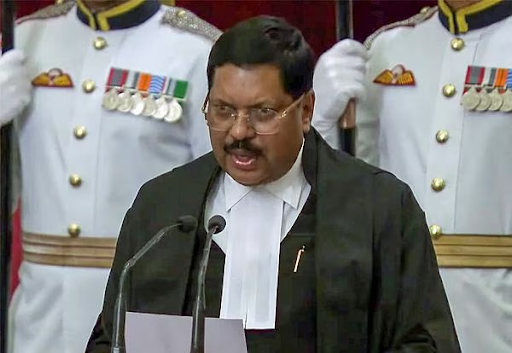Description

Copyright infringement not intended
Context: The Protection of Children from Sexual Offences (POCSO) Act was enacted not to punish and criminalise youngsters in consensual relationships, the Bombay High Court said while giving bail to a 23-year-old man charged with raping a minor.
Details
Highlights of the judgment
- The court noted that the victim in the case was a minor, but her statement suggests that the relationship was consenting.
- It should be noted that the POCSO Act was enacted to protect children from offences such as sexual assault, sexual harassment, and so on, and it contains stringent penal provisions to safeguard the interests and well-being of the children.
- The objective is to protect, not punish or criminalise minors in romantic or consensual relationships.

Protection of Children from Sexual Offences (POCSO) Act
About
- The Protection of Children from Sexual Offences (POCSO) Act was enacted in 2012 to provide legal protection to children from sexual abuse, exploitation and pornography.
- It defines various forms of sexual offences against children and prescribes stringent punishments for the perpetrators.
- It mandates reporting of such cases, medical examination and counselling of the child, compensation and rehabilitation of the victim, and protection of the identity and privacy of the child.
Objectives
- To safeguard the rights and dignity of children who are victims of sexual abuse and exploitation.
- Establishment of special courts, special public prosecutors, special juvenile police units and child welfare committees to ensure a speedy and child-friendly justice delivery system.

Key Provisions
Definition of child
- The Act defines a child as any person below the age of 18 years and recognizes the right of every child to be free from any form of sexual violence.
- The Act sets a uniform age of consent for all children, irrespective of their gender or sexual orientation.
Crimes
- The Act recognizes that any form of sexual contact with a child is an offence, regardless of whether the child consented or not, or whether the child was deceived or coerced.
- It criminalizes all forms of sexual contact with a child, including penetrative and non-penetrative acts, as well as sexual harassment and stalking.
Reporting
- The Act makes it mandatory for anyone who knows an offence under the Act to report it to the police or a child welfare committee.
- Failure to do so can attract imprisonment of up to 6 months or a fine or both.
- It empowers the child to file a complaint directly or through a parent, guardian, teacher or any other person in whom the child has trust and confidence.
Support to victim
- It provides for medical examination and treatment of the child within 24 hours of the report, as well as compensation and rehabilitation for the victim.
Protect the identity of victims
- The Act also makes it mandatory for media personnel and others to protect the identity and privacy of the child victim. Disclosure of any information that can lead to the identification of the child can invite imprisonment of up to one year or fine or both.
Punishments
- The Act prescribes stringent punishments for offenders, ranging from a minimum of 7 years to life imprisonment or even the death penalty in some cases.
- The Act shifts the burden of proof from the victim to the accused, making it easier for the child to testify and seek justice.
Special Court
- It provides for special courts and procedures to ensure speedy trial and a child-friendly justice delivery system.
- The Act provides for the appointment of special public prosecutors and special juvenile police units to handle cases under the Act.
- The Act mandates that cases under the Act should be disposed of within one year from the date of taking cognizance by the court.
|
Present Status
● According to the National Crime Records Bureau (NCRB), a total of 32,608 cases of crimes against children were registered under the POCSO Act in 2019, which accounted for 51.9% of the total crimes against children.
● However, this is only the tip of the iceberg, as many cases go unreported due to fear, stigma and lack of awareness among children and their families.
|

Challenges
Lack of awareness and sensitization
- Lack of awareness and sensitization among various stakeholders, such as parents, teachers, police officers, judges, lawyers, medical professionals, etc., about the provisions and procedures under this Act.
Lack of infrastructure
- Lack of adequate infrastructure, manpower and resources for the effective functioning of the special courts, police units and child welfare committees.
- Lack of adequate infrastructure and resources, such as trained personnel, child-friendly facilities, forensic labs, etc., for effective investigation and prosecution of cases under this Act.
Lack of training
- Lack of proper training and orientation for the judicial officers, prosecutors, police personnel and medical professionals involved in handling such cases.
Social Stigma
- Social stigma and pressure on the victims and their families to remain silent or compromise with the perpetrators.
Low conviction rate and delay
- Low conviction rate and delay in disposal of cases due to various factors such as lack of evidence, witnesses, legal aid and coordination among different agencies.
Lack of coordination and cooperation
- Lack of coordination and cooperation among different agencies involved in handling cases under this Act, such as police, judiciary, social welfare department, child welfare committees, etc.
- Lack of proper monitoring and evaluation mechanisms to assess the impact and outcomes of this Act on the prevention and redressal of child sexual abuse and sexual exploitation.
Steps need to be taken
Awareness and Sensitization
- Creating awareness and sensitization among children, parents, teachers, community members and other stakeholders about the provisions and objectives of the POCSO Act, as well as the signs and symptoms of child sexual abuse and how to report it.
Enhancing the capacity and training
- Enhancing the capacity and training of the police, judiciary, medical professionals, social workers and other functionaries involved in the implementation of the POCSO Act, to ensure that they follow the child-friendly procedures and guidelines prescribed by the Act and respect the best interests of the child at every stage.
Strengthening the coordination and collaboration
- Strengthening the coordination and collaboration among different agencies and departments such as Women and Child Development, Health, Education, Home Affairs, Law and Justice, etc., to ensure a holistic and integrated approach towards addressing child sexual abuse cases.
Adequate resources
- Providing adequate infrastructure, human resources and financial support to the Special Courts, Child Welfare Committees, Special Public Prosecutors and Special Juvenile Police Units established under the POCSO Act, to ensure that they function effectively and efficiently.
Set time limit
- Ensuring timely registration, investigation, prosecution and disposal of child sexual abuse cases by adhering to the time-bound procedures laid down by the POCSO Act and ensuring that there is no undue delay or harassment of the child or his/her family.
Support system
- Providing adequate medical, psychological, legal and social support to the child victims and their families throughout the process of justice delivery and rehabilitation, as well as ensuring their safety and confidentiality.
Monitoring and evaluation
- Monitoring and evaluating the implementation of the POCSO Act regularly by collecting data, conducting audits, reviewing judgments and orders, etc., and taking corrective measures wherever required.

Conclusion
- The POCSO Act is a crucial instrument for protecting children from sexual offences and ensuring their best interests. However, it is not enough to have a strong law on paper; it is equally important to have a strong will and commitment to implement it effectively on the ground. Therefore, there is a need for concerted efforts by all concerned parties to create a conducive environment for the prevention, detection, reporting and prosecution of such cases. Only then can we ensure that every child enjoys his or her right to a safe, secure and dignified childhood.
Must Read Articles:
POSCO Act: https://www.iasgyan.in/daily-current-affairs/pocso-act-42#:~:text=POSCO%20Act%2C%202012%20disallows%20any,of%20age%2C%20is%20not%20rape.
|
PRACTICE QUESTION
Q. How can the POCSO Act be more effective in preventing and punishing sexual offences against children? What are the main challenges faced by the law enforcement agencies, the judiciary and the civil society in implementing the Act? What are the possible ways to overcome these challenges and ensure justice for the victims?
|
https://theprint.in/india/pocso-act-enacted-not-to-punish-minors-in-consensual-relations-and-brand-them-as-criminals-says-hc/1554099/
















